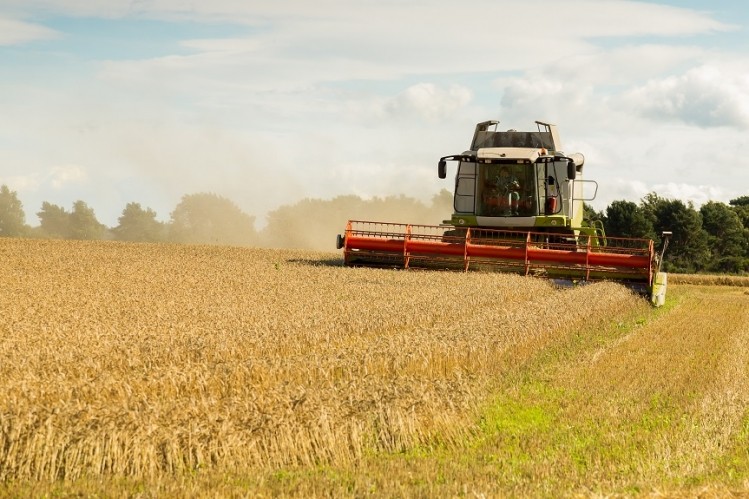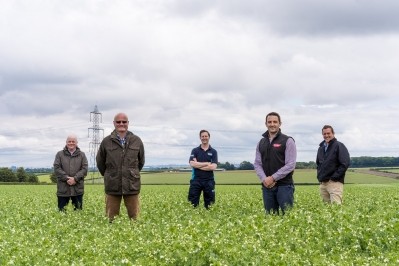Farmers welcome Agriculture Bill becoming law

Since the first version of the Bill was published in 2018, significant improvements had been made to ensure the importance of food production and food security were properly recognised, the National Farmers Union (NFU) said.
The final legislation includes a requirement for a report to be presented to Parliament focusing on the impacts that future trade deals could have on the food and farming sector. Further amendments to the Trade Bill are expected to assign this responsibility to the Trade and Agriculture Commission.
NFU President Minette Batters said: “As the first domestic legislation covering agriculture for over 70 years, this really is a landmark moment for our food and farming industry. Simply put, the Agriculture Act will set how we farm in this country for generations to come.
“Getting to this point has not been easy. Two years ago when the Bill was first published, the clear absence of food production and food security troubled many. The NFU made the case at the highest levels of government that this piece of legislation needed to recognise the role of farmers as food producers and I am pleased it now does that much more robustly.
'Government is listening'
“It will also now play a crucial role in ensuring our farmers are not undercut in future trade deals by food imports that would be illegal to produce here. By strengthening the Trade and Agriculture Commission and putting it on a statutory footing, the Government has shown it is listening to the case we made, together with the millions of people that feel so strongly about this issue."
James Russell, British Veterinary Association president, said: “We are glad to see that the Agriculture Bill has now passed into law. Although it does not include all the assurances that we had hoped for on trade deals after we leave the EU, it is good to see that the remit of the Trade and Agriculture Commission has been strengthened. We are keen to engage with the Commission in the future to make sure that the breadth of veterinary expertise is heard.
“One of the most important elements of the Agri Act is how England will deliver its post-CAP [Common Agricultural Policy]. BVA secured assurances early on that animal health and welfare would be considered public goods and we are pleased to be involved in discussions about how this will be delivered, in practice.
“It is essential that veterinary expertise and advice is at the heart of any new system to ensure that we continue to build on and protect UK standards of animal health and welfare, safeguard public health and protect the livelihoods of farmers here.”
The new Act enabled Government to improve supply chain transparency and fairness and keep food producers competitive and innovative by investing in the latest technology and research, the Department for Environment Food and Rural Affairs (DEFRA) claimed.
The legislation sets out how farmers and land managers in England will be rewarded in the future with public money for 'public goods'. These include better air and water quality, thriving wildlife, soil health, or measures to reduce flooding and tackle the effects of climate change, under the Environmental Land Management scheme. The aim is to incentivise farmers to work towards the UK's environmental goals, for example its commitment to reach net zero carbon emissions by 2050.
DEFRA released a brief video explaining the Act.
Our #AgricultureBill is now law!
— Defra UK (@DefraGovUK) November 11, 2020
The Bill will help farmers:
✅ stay competitive
✅ invest in new technology
✅ improve the environment for generations to comehttps://t.co/N1EC0oYBVf#futurefarmingpic.twitter.com/CjJguMtWv0
Common Agricultural Policy
This new system will also replace the Common Agricultural Policy's Basic Payment Scheme subsidy system. That facility largely paid farmers for the total amount of land farmed, which DEFRA claims has skewed payments towards the largest landowners, rather than rewarding farmers for any specific public benefits.
In order to spend more of the annual budget for agriculture on boosting productivity and environmental benefits, Direct Payments would be phased out over an agricultural transition period. This would begin with the 2021 Basic Payment Scheme year and run until the end of 2027.
However, farmers in particular criticised the Government for not accepting House of Lords amendments to the Act that would have committed it to maintaining high food standards for imports.
Reacting to the Bill becoming law, the Humane Society International UK tweeted:
Thank you everyone who helped push for #animalwelfare in #AgricultureBill, it became law today. Disappointingly no legal veto on imports of low-welfare products in trade deals, but Act DOES change farm support system to deliver animal welfare improvements https://t.co/rzFHEDu8Et
— HSI United Kingdom (@HSIUKorg) November 11, 2020
The legislation does require the Government to report on UK food security to Parliament every three years. The first report will be published at the end of next year, and will include analysis of the impacts on food supply of the coronavirus pandemic, as well as a wide range of themes including global availability of food, food safety and consumer confidence.
Under the new Act, from next year, farmers will have a seven year transition period to adapt to a new agricultural system. Further details would be announced in late November, the Government confirmed.















